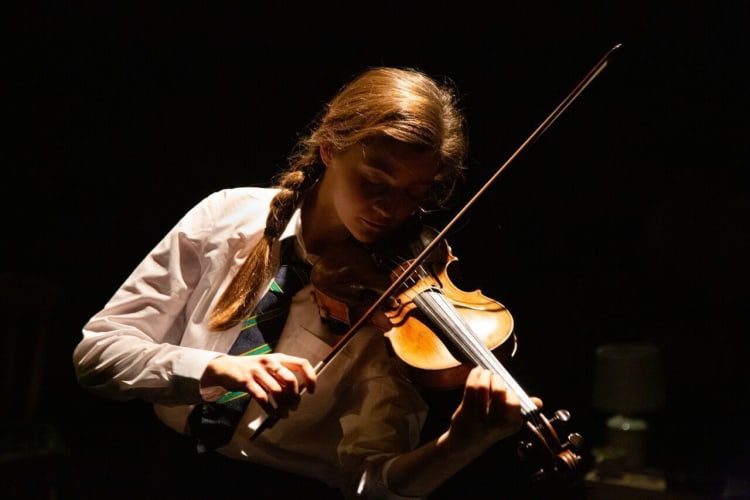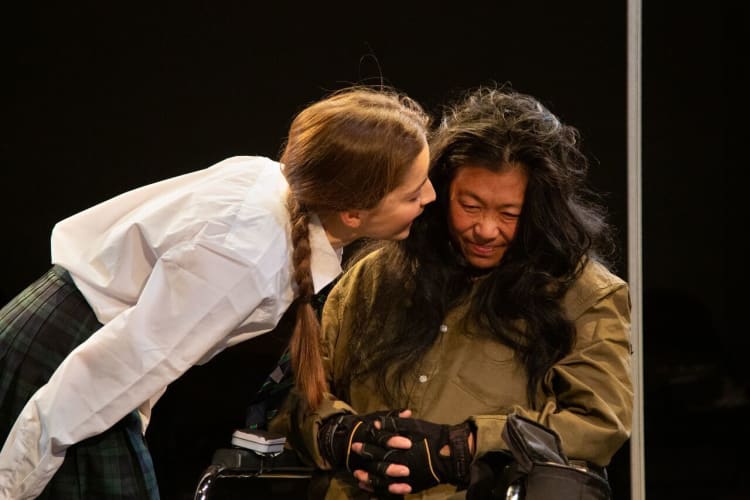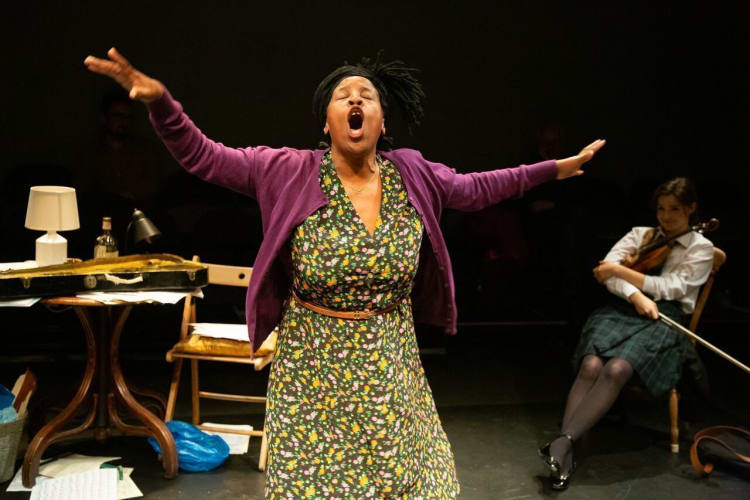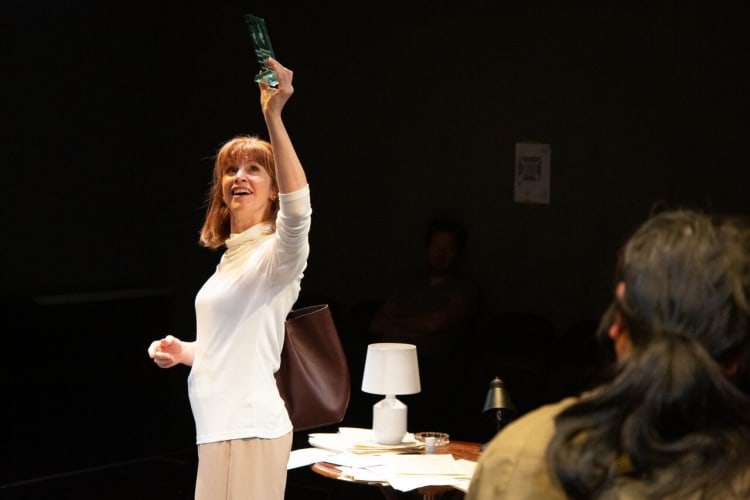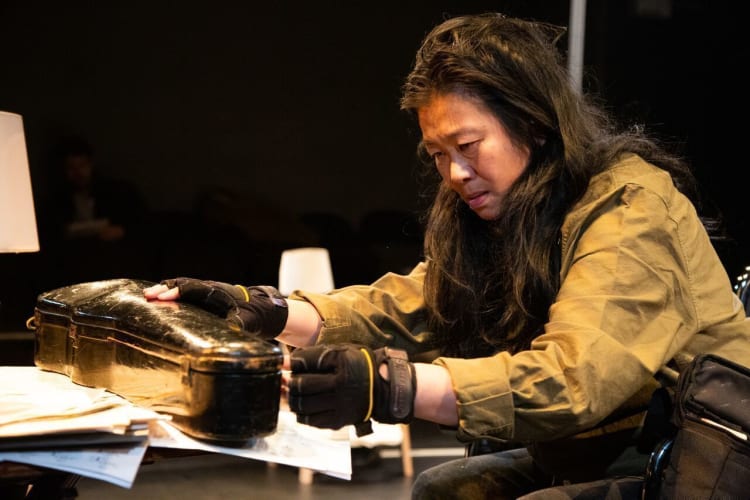What happens when a world-class violinist is incapacitated by a motor accident and can no longer play? How can someone cope with losing the ability to exercise a great talent? Does conservatoire teaching help nurture genius or impose regimentation? Can jealousy co-exist with love? How do you turn an unruly spoiled brat into a worthwhile person?
Jesse Briton’s raises issues rather than answering questions in his new play which offers live musical performance as part of the action. It centres on violinist Ye and her schoolgirl student Simona, daughter of a rich Russian.
Ye is first seen confined to a wheelchair and swallowing handfuls of pills and knocking back whisky in what may be a suicide attempt that is interrupted rather than just an attempt to assuage pain. Her landlady Mary (religious, royalist and given to breaking into song) disturbs her, perhaps deliberately checking up on her. She has application forms for jobs in coffee shops she wants Ye to apply for. Is she worried about getting her rent or is it to make Ye socialise? Then Simona turns up demanding her lesson.
She is in her school blazer, but Mary thinks she’s a prostitute because of her uncouth behaviour. Ye doesn’t know anything about why the girl’s arrived but it has been arranged by Phyllida, a student friend and rival of Ye (and still in love with her) who now Head of Strings at the Royal Conservatoire, who shortly turns up and explains.
Simona’s father is offering six months’ pay for 12 weekly lessons before she takes the Conservatoire entrance audition with a further six months’ money if she passes.
Ye says she doesn’t teach children, Simona says she thought Ye was a man and doesn’t want to be taught by this woman but is still there.
Simone declares she’s good. How does she know? “Female intuition,” is her pat reply. Ye stipulates that she must never be late or miss a class or doing her practice or lessons will be over. That’s agreed but when Ye produces a ¾-size child’s instrument saying, “if you can get a sound out of that you can play anything,” she trashes it.
A week later, Simona turns up bleeding, school bullies have turned on her. Mary deals with her injury and Ye seems to have changed her mind about Simona. She produces her own violin, a 1742 Guarneri (the best maker after Stradivari), for Simona to play on, telling her, “without a player, the instrument is worthless.”
It turns out she is entirely self-taught and can’t even read music but has played by ear, copying Ye’s playing on cassette tape and YouTube. Ye seems to see something special in the girl and tries to imbue her with her own ethos. “The world is polluted by awful players,” she says—presumably she doesn’t think Simona is one of them.
Flora Spencer-Longhurst doesn’t try to make Simona likeable: she’s explosively temperamental, her accent sometimes impenetrable, but her youth gains some sympathy and she really can play the violin. She handles Colin Sell’s compositions and his arrangements of some violin classics with ease.
Ye’s almost terminal depression is painfully portrayed by Lucy Sheen and we get a glimpse of her passion for music, her frustration turned to anger but the play doesn’t explore how she comes to be living with Mary surrounded by empty whisky bottles after the successful career she seems to have had. What’s her real relationship with Melanie Marshall’s warm-hearted, bossy Mary? Carolyn Backhouse’s cool, controlled Phyllida has a back-story with Ye, but these women represent attitudes, relying on the performers to make them interesting people under Jessica Daniel’s direction.
It isn’t the actors’ fault that the situation seems contrived, a frame for voicing attitudes about talent and training that aren’t really argued and the abstraction of Jessica Stanton’s design. Violins hang overhead and doorways and room limits are framed by taut white cords in an elegant appearance of order until you notice the whisky bottles and that many of the violins are shattered.
A Pupil presents one wrecked life and perhaps posits another, but in its 90-minute single act never digs very deeply.
